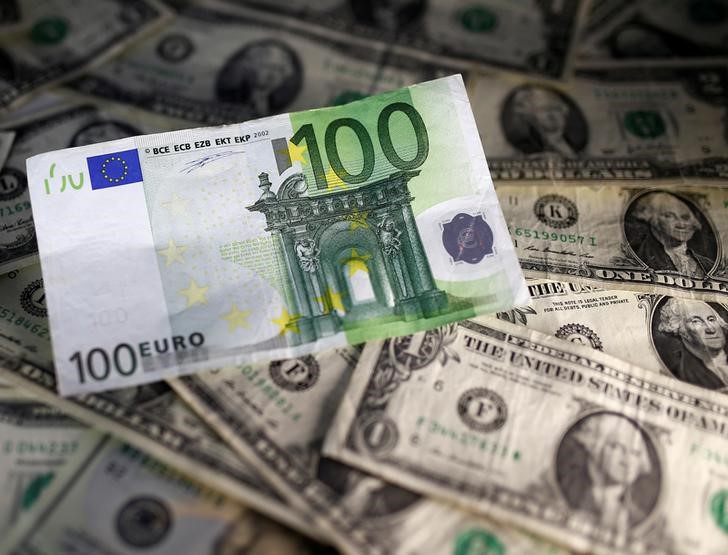LONDON (Reuters) - Donald Trump's top trade adviser accused Germany of using a "grossly undervalued" euro to gain advantage over the United States and its EU partners, the Financial Times reported on Tuesday, in comments that may deepen growing unease over the outlook for global trade.
Peter Navarro, the head of Trump's new National Trade Council, told the newspaper the euro was like an "implicit Deutsche Mark" whose low valuation gave Germany a competitive advantage over its main partners.
Germany's finance ministry declined to comment.
The euro rose after the report, gaining half a percent against the dollar to $1.0764
Navarro's remarks follow comments made by Trump himself to the Wall Street Journal two weeks ago that the dollar's strength against the Chinese yuan "is killing us".
Trump's proposed tax cuts, fiscal spending plans and rising U.S. interest rates had boosted the dollar globally. (DXY)
But a strong currency threatens U.S. competitiveness and makes bringing manufacturing jobs back to the United States - a key Trump election pledge - more difficult.
"We sense the strong dollar policy is over, a thing of the past," said Neil Jones, head of hedge fund FX sales at Mizuho in London.
"Recent U.S. concern over the strong dollar vs China is now feeding into the euro zone with these comments on an undervalued euro," he said.
Navarro, a leading China critic and author of a book called "Death by China", said Germany was one of the main hurdles to a U.S.-EU trade deal and that talks over a Transatlantic Trade and Investment Partnership (TTIP) were dead, the newspaper reported.
"A big obstacle to viewing TTIP as a bilateral deal is Germany, which continues to exploit other countries in the EU as well as the U.S. with an 'implicit Deutsche Mark' that is grossly undervalued," the FT quoted Navarro as saying on Tuesday.
"The German structural imbalance in trade with the rest of the EU and the U.S. underscores the economic heterogeneity within the EU — ergo, this is a multilateral deal in bilateral dress."
Successive U.S. Treasury Secretaries since Robert Rubin in the Clinton administration have repeated his mantra, first enunciated in 1995, that a strong dollar is in the interests of the United States.
It's a tricky balance that Treasury Secretary nominee Steven Mnuchin tried to maintain at his confirmation hearing before the Senate Finance Committee earlier this month. He said Trump's remarks referred to a short-term spike in the dollar due to market factors, not its longer-term value.

"The long-term strength over long periods of time is important" for the dollar, Mnuchin said.